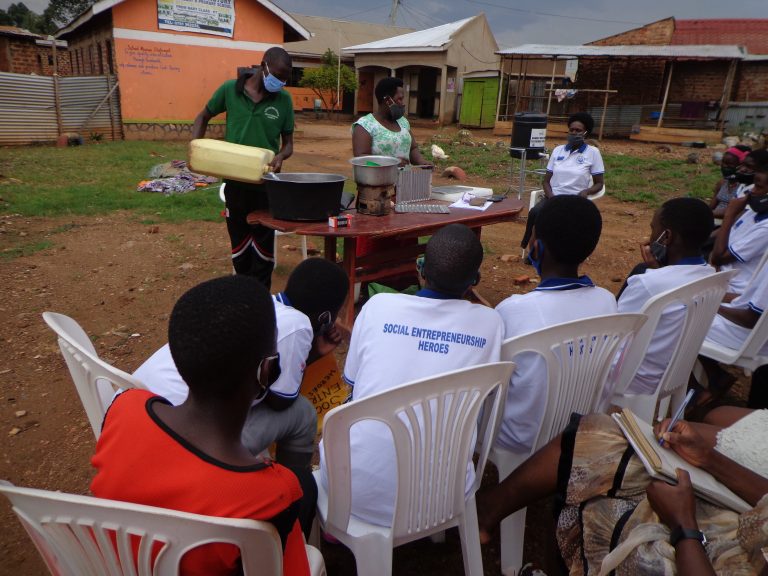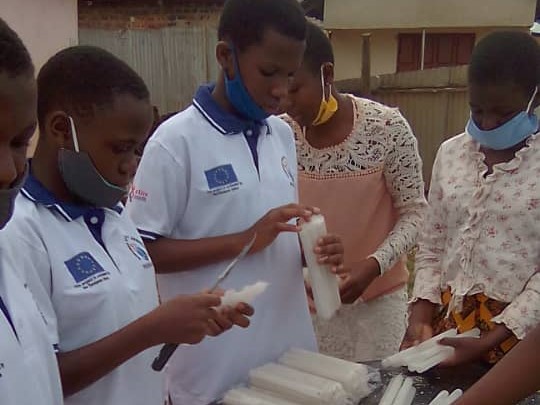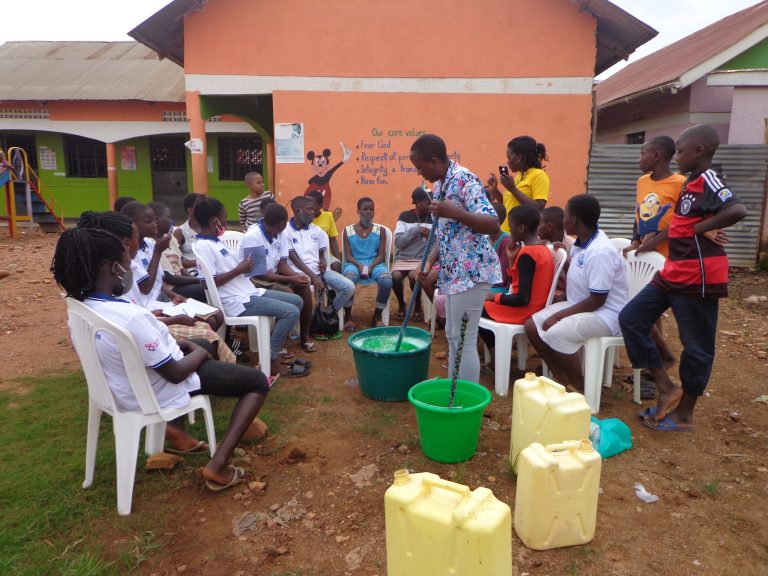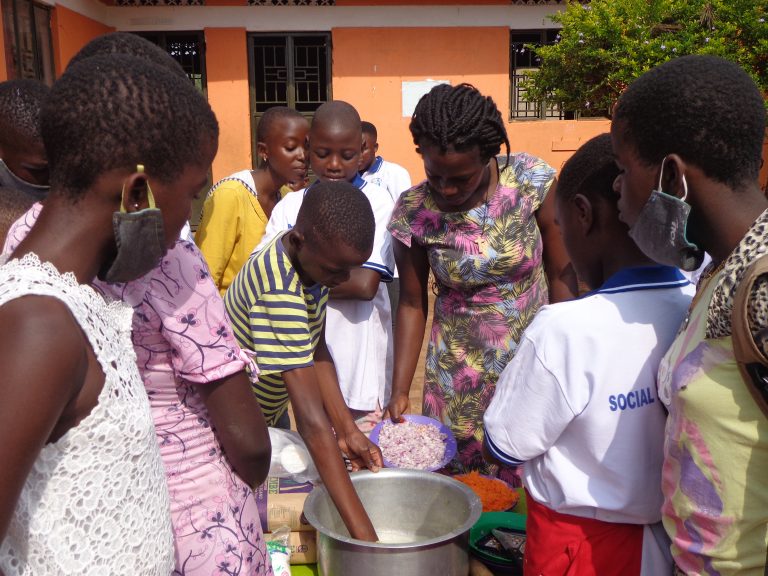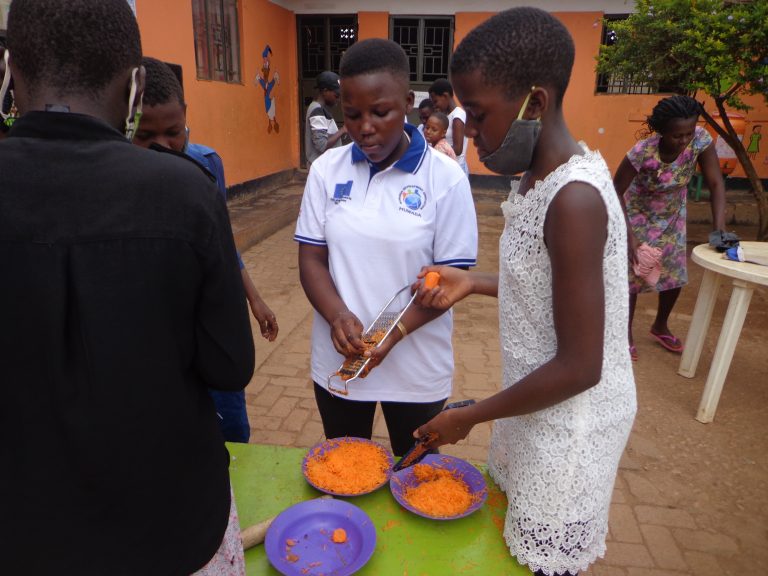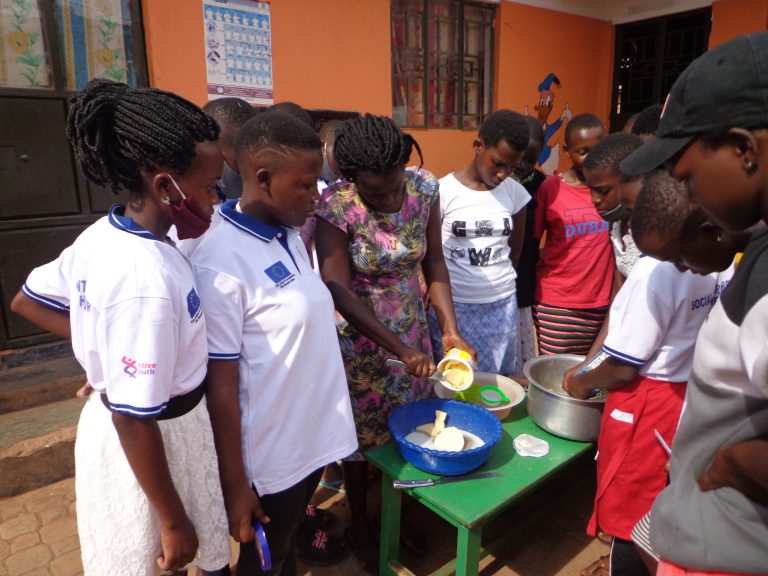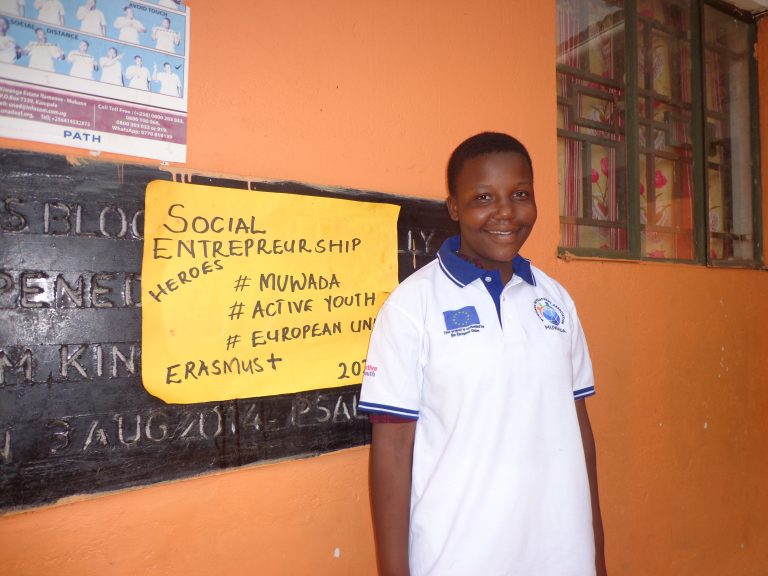Local training about small-scale businesses in Kiboga city, Uganda aimed to teach vulnerable youth about how to start their small-scale businesses. Educating them in the social business area will help them to learn the basics of proper business management, marketing. To begin with, twenty participants were selected to join the training. There youth acquired skills in three different skills and they were selected to deal with social problems in Uganda.
- Making candles – access to electricity is still very limited in the area, therefore the skilling in candle making will improve on access to lighting in the community.
- Making soap – liquid and bar soap making will increase hygiene in the community. Hunger is still a painful problem.
- Bakery – baking skills will improve their food ration. Using flour from matooke, cassava and sweet potatoes (locally available) for cooking will let young children from vulnerable families get what to pack and eat at school. This will improve the grades of young children in school.
Business development and management of social enterprises was incorporated in the training of the beneficiaries as they were taken through day to day skill training. The beneficiaries were trained in different modules of business management and development included; accounting (bookkeeping), marketing, Managing competition, record keeping, saving and financial management. The trained youth will become ambassadors in training other youth in the social enterprises in the community.
Post evaluation to document the project’s impact in the longer term will be done after six months.
Mentorship programme – a long way from the scratch of an idea to final result – prototype of an idea or even product. The main goal was to provide individual assistance to local youngsters who want to establish a social business. Ten mentorships were granted for the youth of Kiboga city. This programme included one to one sessions between the mentor and participant.
These are the social ideas of each participant offered (and that mentors’ consultations were based on):
1. Online school management system
This online school management system (SECTORG3) will be a modern, automation system that suits almost every school or education institution. The system will have over 40+ different learning modules, that will ensure children’s knowledge in different subjects. Many children due to Covid-19 restrictions spend a whole year without studying. The Uganda Government decided to distribute scholastic material for children to study at home, but it is still really hard for them to study without teachers. However, this social idea is going to help out many schools in Uganda to start using online education, which is still a big challenge in the country.
2. Plastic re-using
There was a training session for youth, how to re-use plastic bottles and straws and make out of the mats, bags, or even rings. The idea is simple – to collect as many plastic bottles or straws and develop them into products that could be sold.
3. Nursery school
One of the participants wants to establish a Nursery school, to take care of vulnerable children in the community. The main problem in her city is that there is no kindergarten at all. This nursery school will have a big impact on families, where both of the parents are working.
4. Candle making
After successful local training in making candles, one of the participants wanted to start her own business with that. It is still a big problem, that electricity is not available in most of the areas. This activity would help to make her community brighter.
5. Juice bar – shop
This participant desires to open a juice bar – shop. She already has the place where to open it and have plenty of fruits in the area. She would sell juices of mangoes, bananas, pawpaws or pineapples. The most important thing, that disposable plastic cups will be used, which is friendly to the environment.
6. Tailoring
There is no fully dedicated service only for tailoring at their town. Young girl wants to provide excellent service, make only high-quality products and to ensure an enjoyable atmosphere for the customers.
7. Mobile milk shop
Milk is an integral food product of their eating habits. No matter what season is at the moment, milk is always on demand. The boy’s family has cows and using his bike, he could deliver milk straight to customers.
8. Confectionaries
This participant, after local training of a bakery, wanted to master how to bake cakes and make bread and then, start a baking business.
9. Rolex chapati shop
Rolex is a recognized, world-famous food, which is basically a Ugandan chapati wrapped around a fried egg. The mentor told him to serve kikomando (chapati mixture with beans) and also sell plain chapatis.
10. Ice cream shop
Idea is to sell ice cream for children who are going to school. A small amount of capital can give a good opportunity to live by doing what you like


